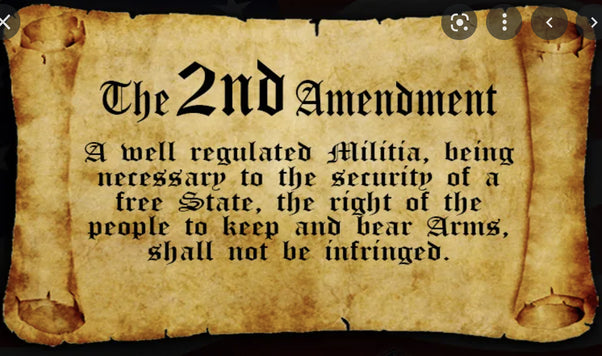Understanding the Second Amendment: Your Right to Bear Arms
"A well regulated Militia, being necessary to the security of a free State, the right of the people to keep and bear Arms, shall not be infringed."
In just twenty-seven words, the Second Amendment enshrines one of America’s most fundamental freedoms — the right to keep and bear arms. But what does the Second Amendment actually mean, and how does it protect you as an American? Let’s break it down.
What is the Second Amendment?
The Second Amendment, ratified on December 15, 1791, is one of the first ten amendments to the Constitution, collectively known as the Bill of Rights. These amendments expanded upon the Constitution by establishing clear individual rights, limiting governmental power, and laying the foundation for American freedom.
At its core, the Second Amendment affirms your individual right to arm yourself, stating unequivocally that the government cannot infringe upon this right. Today, it remains a cornerstone for protecting the rights of law-abiding gun owners.
Breaking Down the Second Amendment
“A well regulated Militia, ...”
The term “militia” here refers to the collective body of the American people. As George Mason put it, "I ask, sir, what is the militia? It is the whole people, except for a few public officials." The Supreme Court has upheld that the right to keep and bear arms is an individual right, independent of any militia membership.
“…being necessary to the security of a free State…”
The Founding Fathers believed that citizens should be able to defend themselves against any threats, including a tyrannical government. This line underscores the necessity of a well-armed populace for maintaining freedom and security.
“…the right of the people to keep and bear Arms, shall not be infringed.”
The concluding line asserts that individuals have the right to own firearms for lawful purposes, and that this right cannot be violated by the government. This protection is similar to the Fourth Amendment’s guarantee against unreasonable searches and seizures, further highlighting that the Founding Fathers intended to protect individual rights.
Landmark Court Cases
Several Supreme Court cases have clarified and affirmed the Second Amendment’s scope:
District of Columbia v. Heller (2008)
This landmark decision affirmed that the Second Amendment guarantees an individual’s right to keep and bear arms for lawful purposes, such as self-defense within the home. The ruling explicitly stated that this right is not connected to service in a militia.
McDonald v. Chicago (2010)
Following Heller, some states attempted to pass laws that infringed upon the right to bear arms. The McDonald case extended the Second Amendment’s protections to all states, affirming that the right to keep and bear arms is fundamental and applicable across the United States.
The Scope of Second Amendment Protections
While the Second Amendment is brief, its protections are extensive. Although state laws vary, the Second Amendment ensures that if you can legally purchase and own a firearm, your right to keep and bear arms is protected.
Your Rights Under the Second Amendment
In essence, the Second Amendment guarantees your right to use Firearms for Lawful Purposes. The core lawful purpose of having a firearm, as established by the Heller decision, is self-defense. The ruling explicitly supports the right to possess a firearm “in case of confrontation.”
Conclusion
The Second Amendment is a fundamental part of American liberty. Its clear language and extensive court interpretations affirm that the right to keep and bear arms is an individual freedom that the government cannot infringe upon. Given this, it’s clear that any gun law infringing on this right is unconstitutional. Understanding and exercising your Second Amendment rights ensures that you are prepared to defend your freedom and security, just as the Founding Fathers intended.

